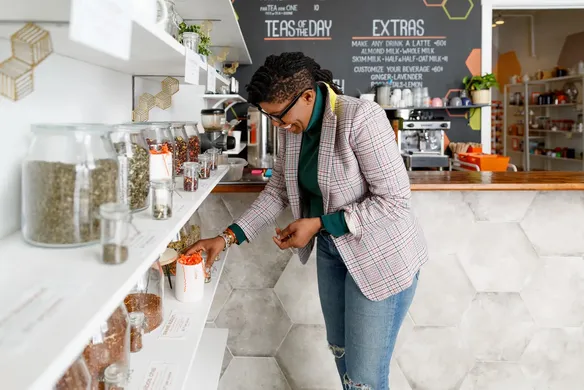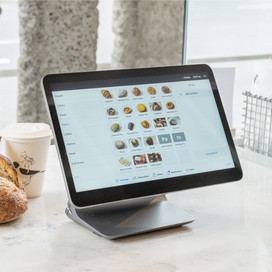Table of contents
Imagine spending your days walking into malls, browsing the racks and shelves, and filling your basket with your favourite items. Now imagine not paying for the pleasure, but getting paid for the pleasure.
That’s the reality for personal shoppers, professionals who get paid to shop for those who are simply too busy to do it. If you feel like you’ve got a talent for understanding a person’s tastes and finding items to match, this could be the career for you.
But while it sounds almost too good to be true, the question of how to become a personal shopper can feel like a tricky one to answer. If it were easy, every shopaholic would do it!
How do you become a personal shopper? In this article, we’ll offer up some answers.
What is a personal shopper?
Personal shoppers are far more than shopaholics. You’ll be asked to provide expertise, advice and guidance to customers on all manner of purchases, from fashion, to food and home décor, which means you’ll need to bring a solid knowledge of a wide range of products, services, fashions and trends.
Personal shoppers are great communicators. They build deep rapport with their customers, becoming trusted consultants over time. They handle all aspects of the buying process: research, browsing, purchasing, paperwork, and any exchanges or returns. This is no nine-to-five job, which can be a good thing and a bad thing – you can set your own hours to a large degree, but you have to be available when your clients are, which can mean you work weekends and outside normal hours, especially around major holidays.
Personal shopper duties and responsibilities
What will a personal shopper be responsible for? The most common duties include:
- Recommending products: As a personal shopper you’ll have in-depth conversations with your clients to understand exactly what they’re looking for, and you’ll guide them on the best options.
- Processing orders: Once you understand exactly what a client is after, it’s time to shop! You’ll be responsible for finding the most appropriate product for the best deal possible.
- Doing the paperwork: You’ll need to carefully document both your purchases and your own fees and charges, and present these numbers to the client on a regular basis.
- Returns, replacements and exchanges: If a product isn’t exactly what the client wants, or if it proves faulty, it’s your responsibility to return, replace or exchange it.
- Grow your business: While the utmost care should be taken with your clients, you’ve also got a business to run, so you’ll need to market your services!
How do personal shoppers make money?
Personal shoppers tend to get paid in one of two ways:
- By the hour: You track your time and charge those hours out on a weekly, fortnightly or monthly basis.
- A monthly retainer: You charge a set sum that allows the client to access your services whenever they want (to a point.)
What do personal shoppers earn?
According to Glassdoor, personal shoppers in Australia – sometimes called ‘store shoppers’ to avoid confusion with supermarket online delivery pickers – earn an average of $57.50/hour. It should be said that because this is quite a rare profession, the best and highest-earning personal shoppers do skew this average a little. You’ll tend to start your journey earning around $25/hour.
Required skills and qualifications to become a personal shopper
Good news! You don’t need any formal qualifications to become a personal shopper – no uni, TAFE, or any other form of certification. That said, a wealth of other, less-formal skills are a must, including:
- Communication: Personal shoppers are great communicators, able to understand a client’s needs and wants even if they don’t themselves!
- Time management: You’ll be in charge of your own schedule, and will often work to deadlines, so you’ll need to be an excellent time manager.
- Professionalism: All clients should be treated with the same care, and all return, replacement and exchange issues need to be dealt with in a professional manner.
- Computer literacy: As with any modern business owner, you’ll need to digitally track your client dealings, purchases and your own invoicing.
Then there are the ‘nice-to-haves’; those skills that represent added value to your clients:
- A background in fashion, interior design or styling
- Photography skills
- Professional connections that grant you access to the latest styles or best prices.
Finally, as a sole trader, you’ll need to register for an Australian Business Number (ABN).
Essential equipment needed to start a personal shopping business
While a personal shopper’s most important equipment is a mouth to talk to clients and an eye for fashion, there are a couple of other must-haves:
- A smartphone with a good camera: While you’re shopping you’ll need to take photos of potential purchases for client approval, so a good camera is vital.
- A roomy, reliable and insured vehicle: Personal shoppers do a lot of driving, and will often need to pick up large items, so make sure your car is up to the task.
- A laptop and business software: At the end of a long day shopping, you’ll need to do the less fun side of the job – the admin. Choose hardware and software that’s easy to use and up to the task.
How to find clients
Clever marketing is the key to expanding your personal shopping empire, so consider the following strategies:
- Build a website: How to become a luxury personal shopper? Build your brand. How to build your brand? Build a website. The good news? Square Online makes that job easier than ever!
- Word of mouth: Referrals are the most powerful tool in a personal shopper’s marketing arsenal, so ask your current clients to review you online and to tell their friends.
- Social media: Personal shopping is one of those jobs that social media seems purpose-built for. Take photos of your latest haul and share them with the world!
How much can you charge clients?
As mentioned above, the average personal shopper in Australia earns $57.50/hour, and the top personal shoppers can earn a whole lot more, but building up to that point will take time, and you need to prove that you’re worth the money. You’ll probably need to start at the $25/hour mark to get those first clients in.
How to get paid as a personal shopper
Perhaps a more important question than ‘how do I become a personal shopper?’, is ‘how do I get paid as a personal shopper?’ Here are a few of the most common ways:
- Invoicing: Sending quotes and invoices shows professionalism and makes tracking your business finances easy. Square Invoices automates many of these processes, such as sending automated payment reminders so that you get paid on time.
- Accept payments online: When the time comes to get paid, most clients will want to do it online. Square Online Payments makes taking and tracking these payments an absolute breeze.
- Portable credit card reader: Some clients will want the convenience of paying you in the same way that they pay for what you buy. A portable credit card reader like Square Reader can make this super easy – simply plug it into your phone and tap their card!
- Gift cards and loyalty cards: Gift card programs like Square Gift Cards and loyalty programs like Square Loyalty can help to attract new customers, and can encourage current customers to stick around and spend more!
Ready to hit the mall on someone else’s behalf? If you’re ready to shop ‘til you drop, Square is ready to help you do it!
![]()











